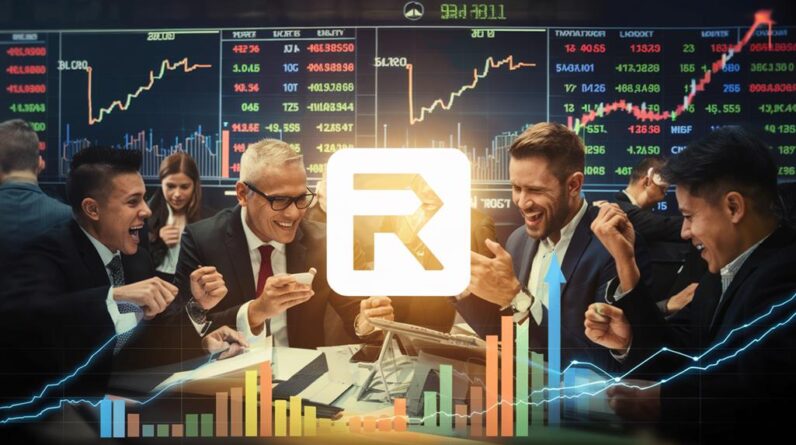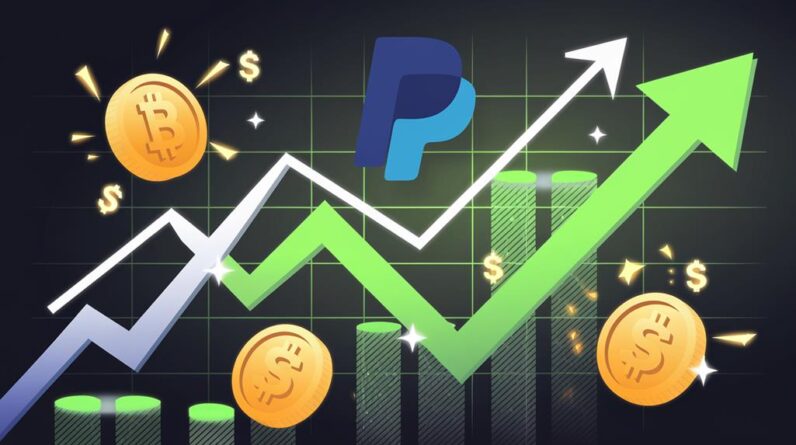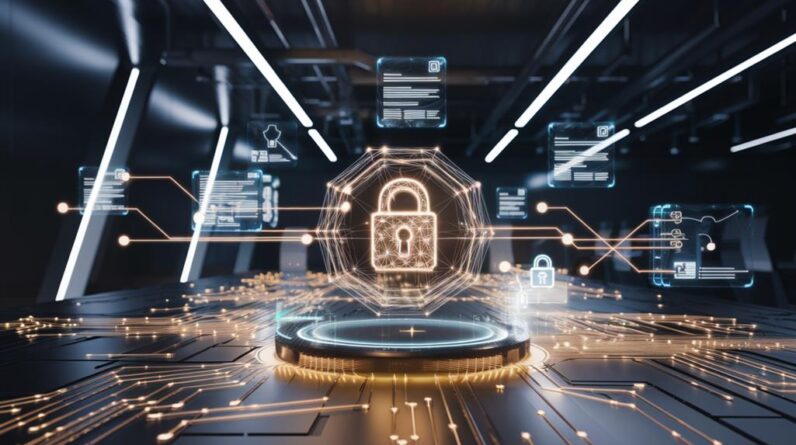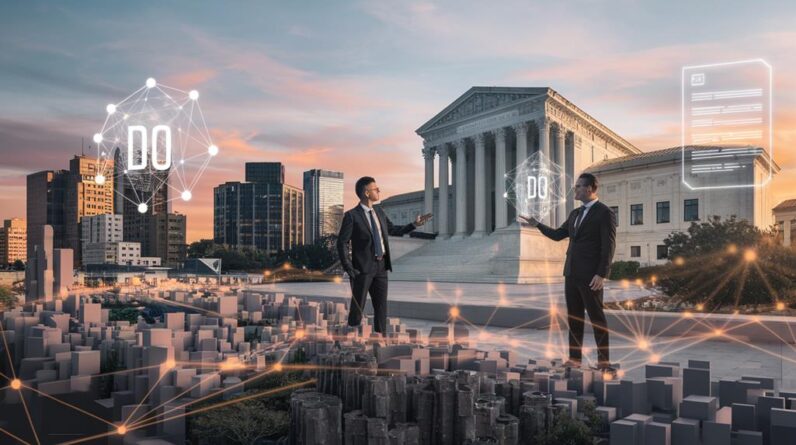
Hong Kong lawmaker Johnny Ng Kit-chong has proposed an extensive legal framework for Decentralized Autonomous Organizations (DAOs). This initiative aims to regulate blockchain-based entities, protect participants, and boost confidence in DAO governance. The proposal responds to recent court rulings emphasizing the need for regulatory clarity. It focuses on fostering innovation within Hong Kong's financial technology sector while addressing the challenges of decentralized entities operating across borders. The framework seeks to balance innovation with risk mitigation, engaging diverse stakeholders to enhance regulatory effectiveness. This move could potentially influence global DAO regulation and reshape decentralized finance and governance worldwide.
Table of Contents
The Call for DAO Regulation
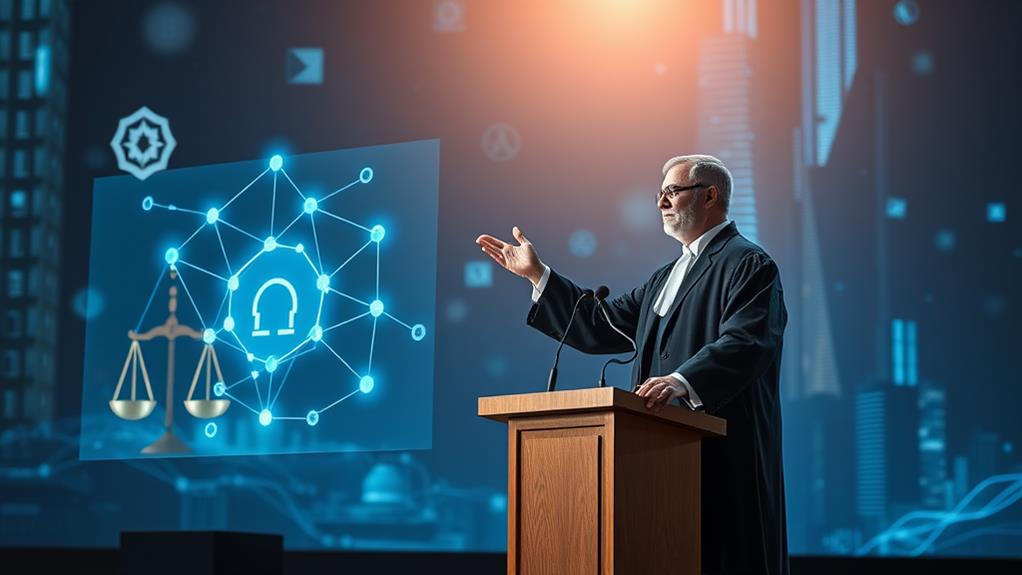
Hong Kong lawmaker Johnny Ng Kit-chong has issued a call for an extensive legal framework to regulate Decentralized Autonomous Organizations (DAOs). This proposal comes in response to recent court rulings highlighting the need for regulatory clarity in the rapidly evolving landscape of decentralized entities.
Ng's initiative aims to protect participants and bolster confidence in DAO governance while fostering innovation in Hong Kong's financial technology sector. The proposed framework seeks to address the unique challenges posed by DAOs, which operate without traditional centralized leadership and often engage in cross-border activities.
Understanding Decentralized Autonomous Organizations
Decentralized Autonomous Organizations (DAOs) represent a revolutionary approach to organizational structure in the digital age. These entities operate on blockchain technology, utilizing smart contracts to facilitate decision-making and resource allocation without traditional hierarchical management. DAO governance models empower participants to have a direct say in the organization's direction, fostering a sense of collective ownership and responsibility.
Smart contract security is paramount in DAOs, as these self-executing agreements form the backbone of their operations. By eliminating intermediaries and centralized control, DAOs offer a liberated alternative to conventional corporate structures. However, this freedom comes with challenges, including potential vulnerabilities in code and the need for robust consensus mechanisms. As DAOs continue to evolve, they promise to reshape how we think about collaboration, governance, and organizational autonomy in the digital domain.
Legal Challenges Facing DAOs
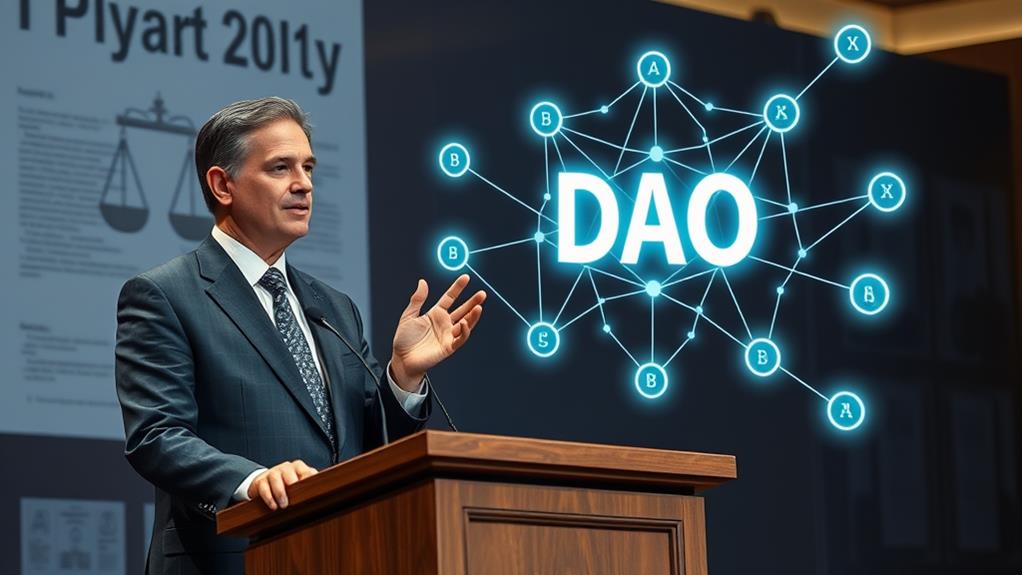
As DAOs gain prominence in the digital landscape, they face a myriad of legal challenges that stem from their unique structure and operational model. The decentralized nature of DAOs presents significant hurdles in determining liability issues and establishing clear governance structures. Traditional legal frameworks struggle to accommodate these blockchain-based entities, leaving participants vulnerable to regulatory uncertainties.
The absence of centralized leadership complicates accountability, raising questions about who bears responsibility in case of disputes or financial losses. In addition, the cross-border operations of many DAOs create jurisdictional complexities, making it difficult to apply existing laws consistently. The potential for fraud and financial instability in unregulated DAOs has drawn increased scrutiny from global authorities. As the crypto landscape evolves, addressing these legal challenges becomes vital for fostering innovation while protecting participants and maintaining the spirit of decentralization that DAOs embody.
Collaborative Approach to Regulation
A collaborative approach to regulation stands at the forefront of Hong Kong lawmaker Johnny Ng Kit-chong's proposal for a DAO legal framework. Recognizing the complexity of decentralized organizations, Ng emphasizes the essential role of stakeholder engagement in crafting effective legislation. This approach aims to balance innovation with risk mitigation, ensuring that regulations do not stifle the freedom-oriented principles underlying DAOs.
Global Implications and Future Outlook
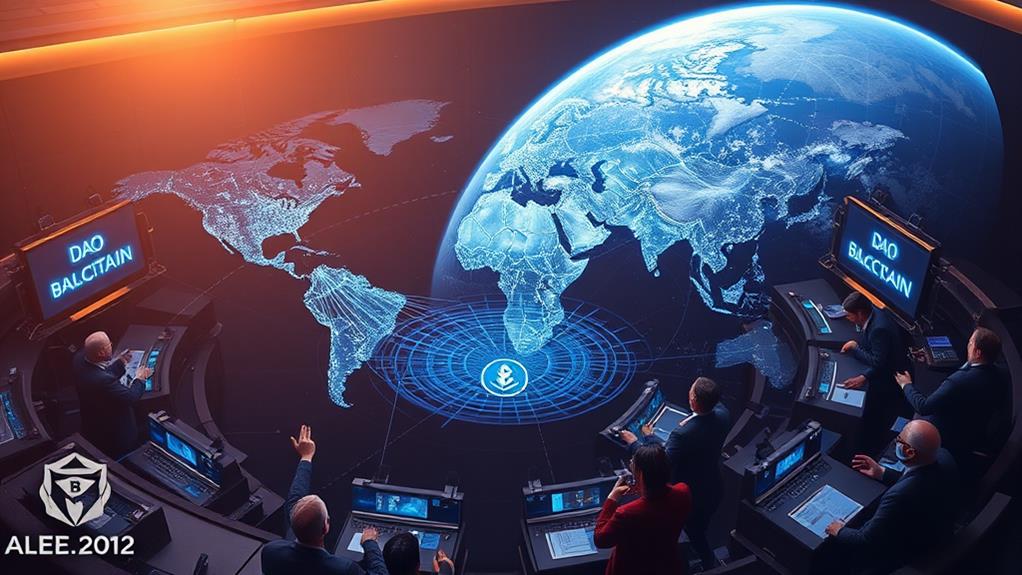
Hong Kong's initiative to establish a legal framework for DAOs potentially carries far-reaching global implications. As a financial hub, Hong Kong's approach could serve as a blueprint for other jurisdictions grappling with the challenges posed by decentralized organizations. This proactive stance may accelerate DAO adoption worldwide, encouraging innovation while mitigating risks associated with unregulated entities.
The move towards regulatory clarity could spark a domino effect, prompting international discussions on regulatory harmonization for DAOs. Such collaboration might lead to a more cohesive global approach, reducing jurisdictional complexities and enhancing cross-border operations. In addition, Hong Kong's framework could become a benchmark for balancing innovation with investor protection, potentially influencing future policies in other financial centers. As the world watches, Hong Kong's success in regulating DAOs could reshape the landscape of decentralized finance and governance on a global scale.
Conclusion
The clarion call for DAO regulation resonates as a beacon of hope in the murky waters of decentralized finance. As the tide of innovation surges forward, this legislative lighthouse illuminates a path towards legitimacy and security. The proposed framework stands as a cornerstone for future governance, potentially catalyzing a seismic shift in global fintech landscapes. With collaborative efforts and visionary leadership, Hong Kong's initiative may well become the North Star guiding the evolution of decentralized structures worldwide.


